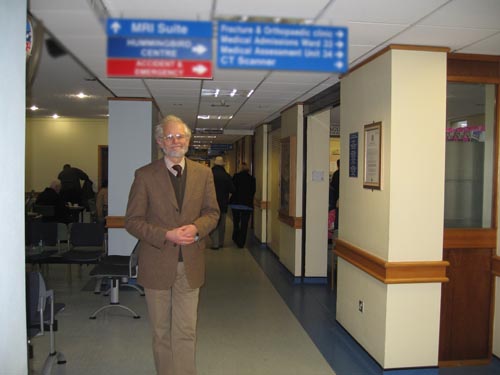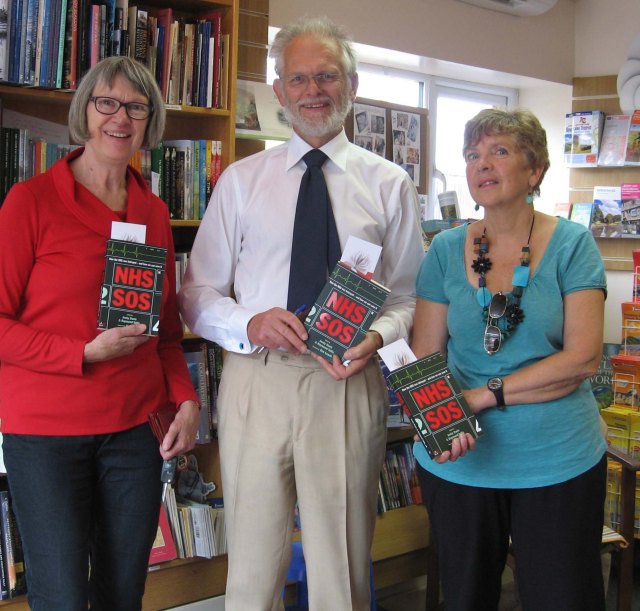In the law of the jungle we see nature red in tooth and claw, dog eats dog, might is right, competition is king and the playground bully rules the roost.
In a civilised society, however we have different values. We believe that everyone should have food in their belly, a roof over their heads, education and healthcare. In a civilised society we recognise that it is in all our interests to identify and treat the patient with TB. It is neither in the interests of the individual nor of society that patients wander round coughing tubercle bacillus all over the other passengers in the bus.
A civilised society provides healthcare for individuals and for communities.
For fifty years the British NHS provided one the most effective, efficient and comprehensive healthcare systems in the world.
The discipline of Public Health is concerned with the health of whole populations and communities. It is responsible for controlling outbreaks of disease, preventing or managing epidemics and the planning for the healthcare delivery to whole communities.
Public Health is not the same as the provision of healthcare for individuals, but both work better when they are integrated. Because Health Authorities and more recently Primary Care Trusts had the responsibility for providing care for all those who lived in a particular locality they could benefit from working with experts in epidemiology and community medicine. And because many public health objectives can only be delivered by treating individuals, Public Health could benefit from working with the bodies that delivered healthcare.
The delivery of Public Health, like many other things, has been dealt a severe blow by Andrew Lansley’s Health and Social Care Act 2012. It is now about to be attacked again.
In the post-Lansley NHS the Secretary of State no longer has the duty to provide a comprehensive health service. Nor do the Clinical Commissioning Groups (CCGs) have a responsibility for everyone in the neighbourhood, but they do at least have the responsibility for commissioning the care needed by their own registered patients. The CCGs are about to be undermined.
When Jeremy Hunt, the current Secretary of State for Health called in a special administrator he hoped that he would be able to put off the financial collapse of the South London Healthcare Trust at least until he was no longer the Secretary of State. The plan the administrator came up with was to close services at neighbouring Lewisham Hospital and transfer them and the money that went with them to shore up the shaky finances at South London. Not surprisingly patients and doctors at Lewisham objected. The CCG in Lewisham believed that it was in their patients’ interests to continue the services at Lewisham Hospital. The courts supported them.
Jeremy Hunt’s response has been to attempt to change the law. He has added a clause to a Care Bill already before Parliament. If this clause is passed, then Trust Special Administrators will have the power to reconfigure healthcare services not only at the NHS Hospital Trust that they have been called in to sort out, but at any other healthcare facilities in the neighbourhood, and to do so without public consultation. If the clause is passed Trust Special Administrators will be able to take services away from hospitals that are currently running perfectly well, that are serving their neighbourhoods and are in a strong financial position. As almost half the hospital trusts in the country are facing financial difficulties, we must assume that every hospital in the country could find itself under the scrutiny of a Trust Special Administrator. If services are moved around to suit the financial convenience of these Administrators it will become quite impossible for CCGs to decide what services they wish to commission and from where these services should be delivered.
The CCGs will be impotent. They will not be able to serve their patients needs.
We shall see whether Jeremy Hunt gets his way. If clause 118 of the Care Bill is allowed to pass we shall see the short term financial needs of bankrupt hospitals destroy any attempt by CCGs to plan a coherent set of services for their patients.
Clinicians who wish to register their objection to clause 118 please sign this open letter drafted by Dr David Wrigley.
Other possible campaigning actions include writing to your MP and your local newspaper.
A petition organised by Louise Irvine on the 38 Degrees website already has a quarter of a million signatures and is still open to sign.
Anyone can also submit evidence directly to the committee examining the bill – see details here and keep an eye on the Keep Our NHS Public website for more advice on that shortly.











